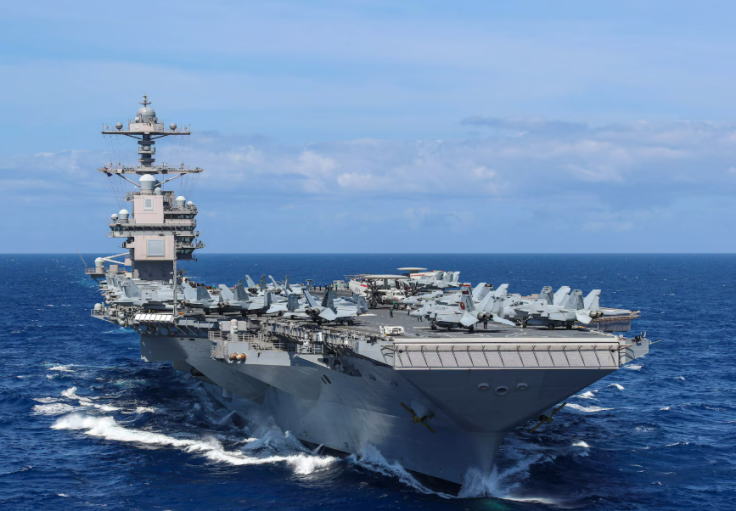
The recent deployment of the USS Gerald R. Ford to the Caribbean could signal that U.S. airstrikes on Venezuela are nearer, according to a Latin America specialist whose scholarship includes a detailed study of the 1989 U.S. invasion of Panama.
In remarks published this week by La Vanguardia, the historian said that if President Donald Trump were preparing to use military force against Venezuela from the Caribbean, "the first thing to look for in the fleet is an aircraft carrier." He described the arrival of the USS Gerald R. Ford — the world's largest carrier, equipped with more than 75 aircraft including 24 Super Hornet strike fighters — as "undoubtedly a sign they may be closer to carrying out airstrikes."
The researcher, a former U.S. Army member and now professor at George Washington University, told La Vanguardia that any potential strike would be aimed primarily at domestic political audiences rather than removing Venezuelan leader Nicolás Maduro. "The Trump administration could carry out some kind of small-scale airstrike," he said. "Not to take control of the country or kill Maduro. I have no idea what they would intend to achieve."
He added that Trump appears more focused on counternarcotics operations than regime change, and that recent strikes on suspected narcotics-linked vessels — more than 20 in the last six weeks — are likely designed for "domestic consumption." He said the perception that Venezuelan authorities are linked to drug trafficking "plays well in the U.S."
The analyst dismissed the likelihood of an invasion comparable to Panama, noting that 1989 required large-scale troop buildup in advance. "A Panamanian-style invasion would require a minimum of about 15,000 soldiers," he said, adding that there is no evidence of the force concentration that preceded the Noriega operation.
He also questioned claims — amplified by both Venezuelan opposition figures and the Maduro government — that the United States is pursuing regime change. He said the country's military still appears loyal to Maduro, and that even a direct strike would be unlikely to collapse the state. "They could cut electricity to Caracas or destroy infrastructure, but it wouldn't bring down the regime," he said.
He suggested that any naval presence could be intended for contingency support if Venezuela experienced internal upheaval, though he stressed he was "speculating."
His comments follow President Trump's weekend interview with CBS, during which he said he doubted war with Venezuela was imminent but did not rule out ground strikes. Asked whether the United States planned land attacks, Trump answered: "I'm not going to tell you what I'm going to do with Venezuela, whether I will or I won't."
Trump rejected suggestions that U.S. activity is aimed at toppling Maduro and insisted that the strikes are "about many things," including his focus on combating drug trafficking. He also characterized Venezuela's Tren de Aragua criminal group as "the most cruel gang in the world."
© 2025 Latin Times. All rights reserved. Do not reproduce without permission.






